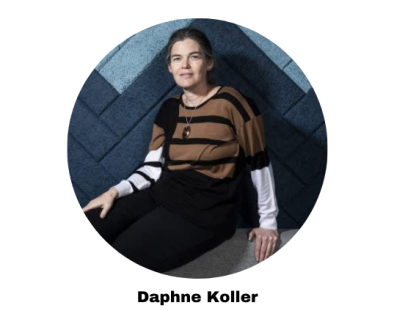Empowering Equality Through Innovation: Reshma Saujani’s Journey with Girls Who Code
In a rapidly evolving world, technology and coding are at the forefront of innovation. Yet, within this sphere, a gap exists—a gender disparity where women are underrepresented. Recognizing this disparity, Reshma Saujani took a significant step to bridge this gap through the founding of Girls Who Code. This initiative isn’t just about teaching girls how to code but about fostering a sense of empowerment and equal opportunity.
Reshma Saujani’s Visionary Path
Reshma Saujani’s journey to founding Girls Who Code is as inspiring as the organization itself. Born to Indian immigrants who fled Uganda’s Idi Amin regime, Saujani’s family instilled in her a deep appreciation for education and perseverance. Her academic journey led her to Harvard University and Yale Law School, equipped with a passion for advocating for social justice and gender equality.
Her path was not without hurdles. Saujani initially pursued a career in law and later ventured into politics, running for Congress in New York. Although her campaign wasn’t successful, it served as a catalyst, fueling her desire to make a tangible impact on society. This drive led her to address an alarming issue— the gender gap in technology.
In 2012, Saujani founded Girls Who Code, driven by a bold mission: to close the gender gap in technology. She realized that empowering young women with coding skills could open doors to opportunities in a predominantly male-dominated field, securing them a seat at the table of technological innovation.
The Foundation of Girls Who Code
The mission of Girls Who Code is not merely technical education but a broader educational transformation. It blends skill development with a sense of community and mentorship. By fostering an environment where girls work with peers and mentors, the organization helps dismantle stereotypes about women in STEM fields.
With programs spanning clubs, summer immersions, and college loops, Girls Who Code has reached tens of thousands of girls across the United States. Their curriculum not only includes coding skills but also cultivates leadership and problem-solving skills.
Creating Competitive Advantage
Girls Who Code’s unique advantage lies in its holistic approach to education. While many programs focus on the technicalities of coding, Girls Who Code blends learning with advocacy, encouraging girls to envision roles as leaders in their communities and beyond.
Drawing inspiration from Saujani’s advocacy for bravery over perfectionism, the organization cultivates environments where girls are encouraged to experiment and learn from failure—a stark contrast to traditional educational outcomes that often emphasize getting it right the first time.
This approach resonates deeply, rewiring how young women perceive their potential, allowing them to think beyond existing architecture and build pathways to the future.
Insights on Gender Equality in Technology
Dr. Anita Borg, a renowned computer scientist, once noted that “good ideas are often the result of some of the greatest failures.” This philosophy is integral to Girls Who Code, as it champions innovation not just in coding but in reshaping societal norms. The approach fosters not only technological skills but also shifts in mindset that challenge gender biases.
Books like ‘Lean In’ by Sheryl Sandberg echo these sentiments, emphasizing that women’s active involvement in leadership can redefine corporate narratives. Girls Who Code embodies this ethos—equipping the next generation with the tools to lead and innovate.
Looking Towards the Horizon
Girls Who Code is more than an educational initiative—it’s a movement and a catalyst for change. As Reshma Saujani continues to advocate for equal access to technology, the organization’s impact grows, marking a shift in both educational and professional landscapes.
By understanding and addressing the roots of gender disparity, fostering community support, and embracing failure as a stepping stone to success, Girls Who Code demonstrates the transformative power of including women in the tech narrative.
Ultimately, Girls Who Code stands as a testament to the belief that when given the opportunity and encouragement, girls can change the world. The movement champions the message that coding isn’t just a career path but a tool for self-expression and social change, echoing Reshma Saujani’s vision of a future where women lead with innovation and courage.

